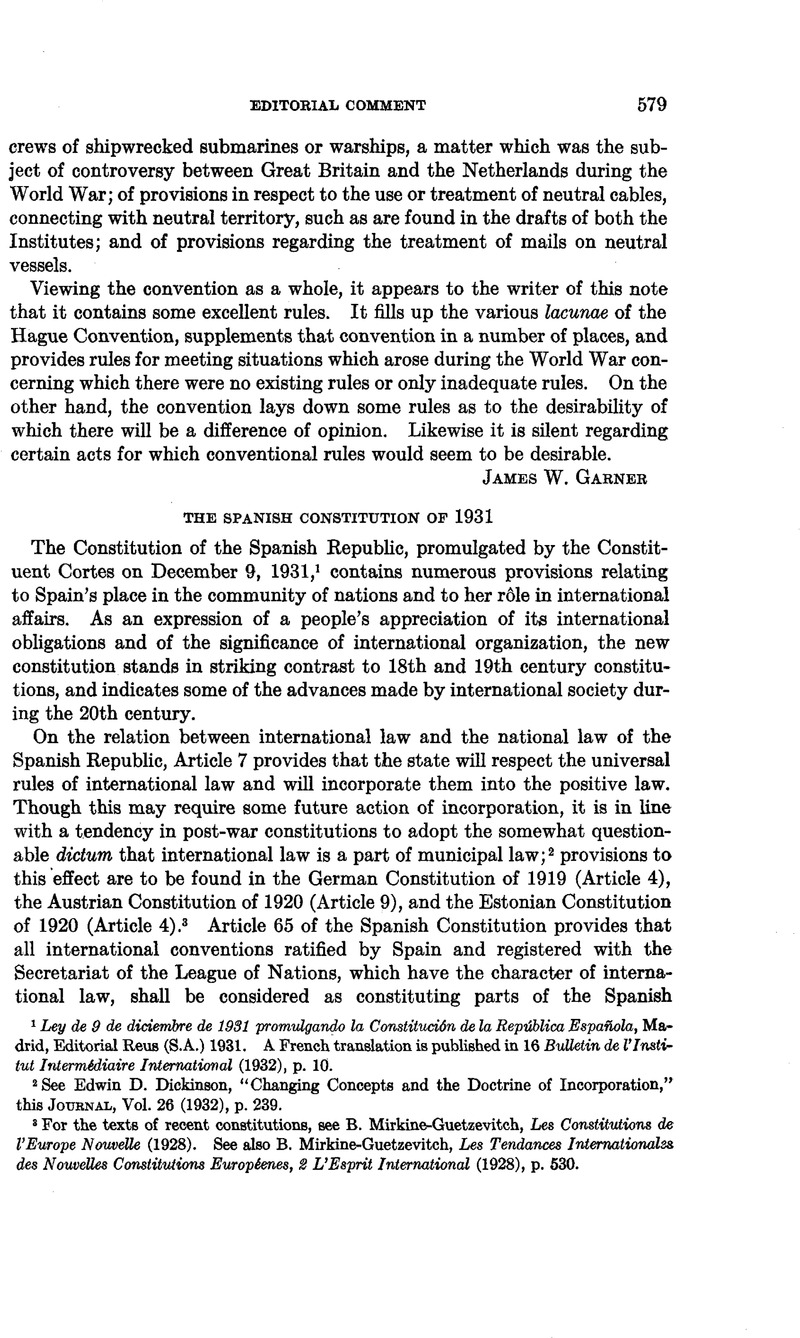No CrossRef data available.
Article contents
The Spanish Constitution of 1931
Published online by Cambridge University Press: 12 April 2017
Abstract

- Type
- Editorial Comment
- Information
- Copyright
- Copyright © by the American Society of International Law 1932
References
1 Ley de 9 de diciembre de 1931 promulgando la Constitución de la República Española, Madrid, Editorial Reus (S.A.) 1931. A French translation is published in 16 Bvlletin de l’Institut Intermédiaire International (1932), p. 10.
2 See Dickinson, Edwin D., “Changing Concepts and the Doctrine of Incorporation,” this Journal, Vol 26 (1932), p. 239.Google Scholar
3 For the texts of recent constitutions, see B. Mirkine-Guetzevitch, Les Constitutions de l’Europe Nouvelle (1928). See also B. Mirkine-Guetzevitch, Les Tendances Internationalst des Nouvelles Constitutions Europèenes, 2 L’Esprit International (1928), p. 530.
4 Taylor v. Morton (1855), 2 Curtis, 454, Hudson’s Cases, p. 933. See Mr. Pitman B. Potter’s strictures on the American doctrine, in tills Journal, Vol. 19 (1925), pp. 316 ff.
5 See Hudson’s Cases, p. 998 note.
6 Professor B. Mirkine-Guetzevitch has pointed out that this recalls the constitutional traditions of the French Revolution, for the French Constitution of 1791, Section 6, provided that “the French nation renounces the making of any war with a view to territorial expansion and will never employ its forces against the liberty of any people.” 3 Political Quarterly (1932), p. 272.
7 Under this Brazilian Constitution of 1891, the Congress has power (Art. 34, par. 11) “to authorize the Government to declare war, when arbitration has failed or is impracticable”; and the President hae power (Art. 48, par. 7) to “declare war and make peace, under the provisions of Article 34, paragraph 11.” Pan American Law and Treaty Series, No. 5 (1927), pp. 10, 15. The 1918 Constitution of Uruguay (Art. 79, par. 18) gives the President power to declare war, with a previous resolution of the General Assembly, if arbitration ia impossible or has failed.


